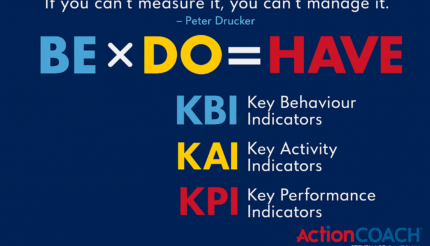If you’re a business owner, chances are you’ve faced imposter syndrome, whether you had the name for it or not.
It’s that internal voice that whispers:
“You don’t really know what you’re doing.”
“You’re not qualified to lead this business.”
“Sooner or later, someone will find you out.”
And it’s almost always wrapped up in fear.
Not fear of failure but fear of being seen.
Fear that you’ll be judged. That someone smarter or more ‘professional’ will expose the gaps you’ve been hiding behind your success. Fear that what got you here isn’t enough to take you further.
Let’s talk about it more, because pretending you’re fine doesn’t fix it.
What Does Imposter Syndrome Look Like in a Business Owner?
Here are some of the symptoms I see all the time:
-
Reluctance to delegate (“I can’t let that go, they’ll mess it up.”)
-
Overworking to ‘prove’ your worth
-
Struggling to price properly or pitch with confidence
-
Downplaying achievements and chalking success up to luck
-
Avoiding visibility through video, public speaking and bold marketing moves
Sound familiar?
I’ve experienced all of the above. Especially around video.
My Fear of Making Videos (And Why I Had to Get Over It)
For the longest time, I avoided video.
Not because I didn’t know my content, but because I feared the judgement. I didn’t feel polished enough. I worried I’d look silly, get it wrong, or not come across the way I intended.
But eventually, I had to ask myself:
What’s the worst that could happen?
And what’s the cost if I keep avoiding this?
I made the decision to just get on with it. First take. Not perfect. Do it anyway.
And here’s what I discovered: it gets easier.
Each time you act despite the fear, it shrinks. Confidence doesn’t come before action. It comes because of it.
Fear and Imposter Syndrome: A Toxic Partnership
Imposter syndrome doesn’t exist on its own. It feeds on fear, the fear of being seen, being judged, or not being good enough. Fear that your success is fragile. That if you slow down, it might all fall apart.
But here’s the truth:
F.E.A.R. = False Evidence Appearing Real
Most of the stories we tell ourselves are just that, stories. And it’s time to rewrite them.
10 Practical Ways to Overcome Imposter Syndrome
Here are ten strategies, originally shared by Brad Sugars, but now reimagined through the lens of a business owner who’s lived it and coached others through it.
1. Recognise that self-doubt isn’t reality
Just because you feel like a fraud doesn’t mean you are one. Feeling like an imposter isn’t the same as being one.
You can be competent and still doubt yourself. That’s normal. What matters is not letting the doubt make your decisions.
2. Reframe your self-talk
That internal dialogue matters.
Replace “I don’t belong here” with:
“I’m learning and growing like every other leader out there.”
Progress over perfection, every time.
3. Track your wins
Keep a file of positive feedback, testimonials, successful projects. Go back to it on the tough days. It’s hard to argue with evidence.
Your brain will always remember the one thing that went wrong, you need to remind it of the fifty that went right.
4. Talk to someone who gets it
This could be a coach, mentor, or fellow business owner.
Someone who can remind you you’re not alone and that even the most confident-looking people have struggled with the same thing. The right person can help you reframe what you’re too close to see clearly.
5. Separate luck from effort
When business owners succeed, many say “I was lucky.” But luck doesn’t show up for people who never put in the work.
Show up consistently. Build the relationships. Do the right things. That’s not luck that’s earned.
6. Accept that growth feels uncomfortable
Stretching into the next version of yourself will feel awkward. That’s not a problem, it’s a sign of progress.
The discomfort is part of the process. It means you’re pushing boundaries, not coasting in the comfort zone.
7. Avoid the comparison trap
Stop comparing your behind-the-scenes chaos to someone else’s polished highlight reel.
They’ve got doubts too they’re just not posting them. Stay focused on your journey. Your business. Your next step.
8. Adopt a learning mindset
You don’t need to prove you know it all.
Instead, adopt this mantra:
“I’m here to learn, improve, and grow.”
You’re not an imposter. You’re evolving. The most successful people in the world are still students.
9. Own your unique value
You have a combination of experience, insight, and perspective that nobody else has.
Even if you don’t have 20 years in the game, you still bring something important to the table. Stop waiting to be ‘ready’ and start delivering from where you are now.
10. Take consistent, small steps
The fastest way to kill fear is with action.
Make the video. Share the story. Delegate the task. Ask the client for the review.
Every time you take a step, you prove to yourself that the fear was lying.
Final Thoughts: Confidence Follows Action
You don’t overcome imposter syndrome with journaling alone.
You overcome it by doing the thing you’re afraid of over and over, until it becomes normal.
And you don’t have to do it alone.
Three Ways to Take Action
Want to talk through this?
Let’s grab a coffee and chat. Message me and we’ll find a time.
Know someone who needs this?
Send them this blog. Let them know they’re not alone.





